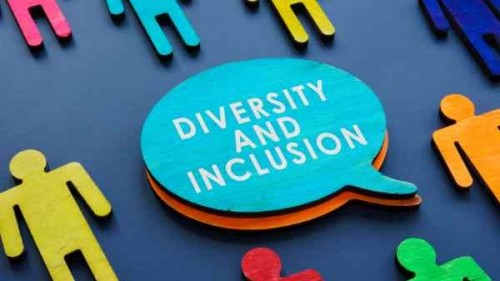Diversity and Inclusion Have Stagnated, According to Report Results
Posted on 17th November 2022
Despite major efforts over recent years, the Harnham annual State of Diversity in Data and Analytics has found that minor changes have taken place in regards to industry diversity in the past year.
This result comes despite there being a general consensus amongst employers that diversity must be a priority.
In terms of gender pay equality, there was a 14% decrease, a positive indication of employers prioritising diversity. As well as this, there was also a 50% increase for the pay gap based on ethnicity. Both of these statistics highlight that real change can take place when employers listen to their employees and respond.
Another promising statistic revealed that gender parity pay gaps account for 40% compared to the 28% of roles that women fill. So, why has there only been such little change overall to improve statistics even further?
An ethnicity division
The report found that Data & Analytics professionals are less likely to be white/caucasian (75%) than the entire population of the country which stands at 86%. The UK is home to a number of ethnically diverse UK industries. Despite the lower white professional representation, it does not imply that all ethnicities are experiencing greater representation.
In comparison, Black, African, Caribbean, and Black British professionals account for only 3% of the workforce compared to 3.5% in 2011.
Gap in pay based on ethnicity
It has been reported previously that the pay gap by gender often exceeds the pay gap by ethnicity by a fair amount. It now stands at 8% in comparison to the 6% gender gap, an increase of more than 50% compared to last year’s findings.
A white/caucasian male individual earns on average £69,260 per year in the Data & Analytics industry, while a Black, African, Caribbean, and Black British woman earns on average £53,850, accounting for a 22% pay gap.
28% of Data & Analytics professionals in 2021 were women. Despite the fact that it does not indicate a significant improvement in the numbers, it does suggest that last year's statistics are not to be confused for an ongoing trend.
Among professionals entering the industry for the first time, gender equality is moving much closer to parity, with an increase from 28% to 40%.
In certain sectors, however, there are fewer female professionals than last year, including Data Science, Digital Analytics, and Data & Technology. The drop in female percentage was most pronounced at Digital Analytics, where it decreased by 5% from 37% to 32%.
Inequality in pay for women
Data & Analytics professionals have a 6% pay gap. Furthermore, this is a drop from last year's 9.%, meaning a significant improvement compared to last year.
Nonetheless, pay inequality is prevalent,especially for parents. A male professional responsible for raising children earns an average of £76,700, whereas a female professional with exactly the same position earns averagely £65,580 which accounts for a salary difference of 14%. Despite these results, all specialisations reported a smaller gap than the UK average, ranging from 9% to 1% all in favour of women in Marketing & Insight industries.
Diversity is decreasing as seniority increases regardless of growing recognition about equality found amongst leaders.
Asian, Black and Minority Ethnic professionals represent nearly half at entry-level (42%), but just 16% at director and head levels.
Even though there are fewer extremes within gender, women make up 35% of entry-level professionals and 26% of director/head of departments in the industry, almost 40% of UK FTSE 100 directorships belong to women, the Data & Analytics industry lags behind.
This can be attributed to several factors, including an extended career break of three months or more.
According to the study, 21% of female professionals in Data & Analytics took time off because of this reason, while only 3% of male professionals took time off.
